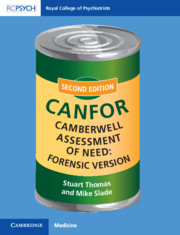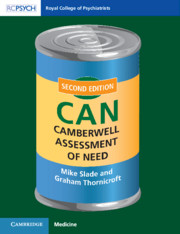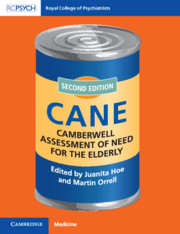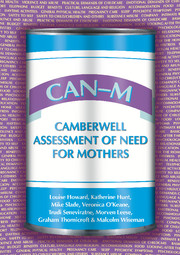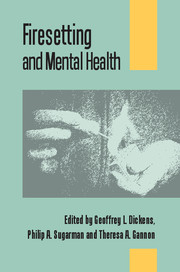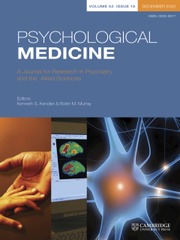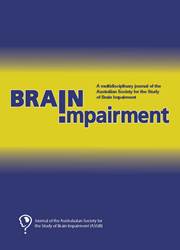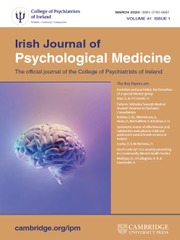Camberwell Assessment of Need: Forensic Version
The Camberwell Assessment of Need Forensic Version (CANFOR) is a tool for assessing the needs of people with mental health problems who are in contact with forensic services. It is based on the CAN, a widely used needs assessment for people with severe mental health problems. Individual needs are assessed in 25 areas of life, spanning health, social, clinical and functional domains. Comprehensive versions are available for research (CANFOR-R) and clinical use (CANFOR-C), as well as a short summary version (CANFOR-S) suitable for both research and clinical use. CANFOR was rigorously developed by a multidisciplinary team at the Institute of Psychiatry, London, and is suitable for use in all forensic mental health and prison settings. This second edition provides an update of the CANFOR tools and their application in clinical and research settings. The assessment forms are freely available to download from the CAN website (researchintorecovery.com/can) and cambridge.org.
- Contains blank forms of all three CANFOR measures for scanning or photocopying, and downloadable versions are freely available on the CAN website (researchintorecovery.com/can) and the Cambridge University Press website (cambridge.org)
- No additional training is needed for the assessment to be completed by mental health workers or researchers
- Modernises the CANFOR to include updated need domains, details of the tool's psychometric properties and an overview of new research using the CANFOR
Reviews & endorsements
'All forensic mental health services need a validated needs assessment tool, which includes clinician and patient ratings. The CANFOR is eminently fit for purpose. This revised version is the full package, with abbreviated and research versions, translations, a comprehensive training program and all necessary forms. The revision is thoughtful, contemporary and highly accessible. The CANFOR is strongly recommended, and will provide forensic mental health services with a tool that not only supports evidence-based recovery, but can inform service planning and therapeutic interventions.' Danny Sullivan, Executive Director of Clinical Services, Victorian Institute of Forensic Mental Health, Melbourne, Australia
Product details
June 2021Paperback
9781911623410
122 pages
246 × 188 × 7 mm
0.28kg
Available
Table of Contents
- 1. Introduction
- 2. Needs assessment
- 3. Development of the Camberwell Assessment of Need Forensic Version (CANFOR)
- 4. Practicalities of using the CANFOR scales
- 5. Using the Camberwell Assessment of Need Forensic Research Version (CANFOR-R)
- 6. Using the Camberwell Assessment of Need Forensic Clinical Version (CANFOR-C)
- 7. Using the Camberwell Assessment of Need Forensic Short Version (CANFOR-S)
- 8. Translations of CANFOR
- 9. Suggested training
- 10. Frequently asked questions
- 11. References
- Appendix 1. CANFOR-R
- Appendix 2. CANFOR-C
- Appendix 3. CANFOR-S
- Appendix 4. C and R summary score sheets
- Appendix 5. IJMPR.

